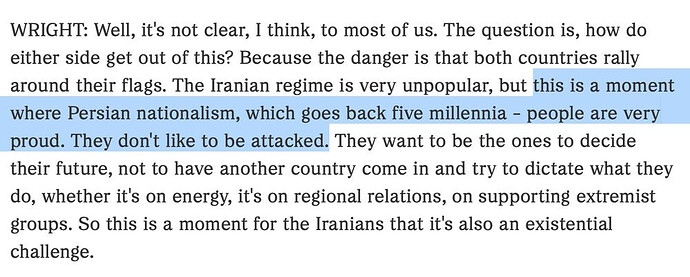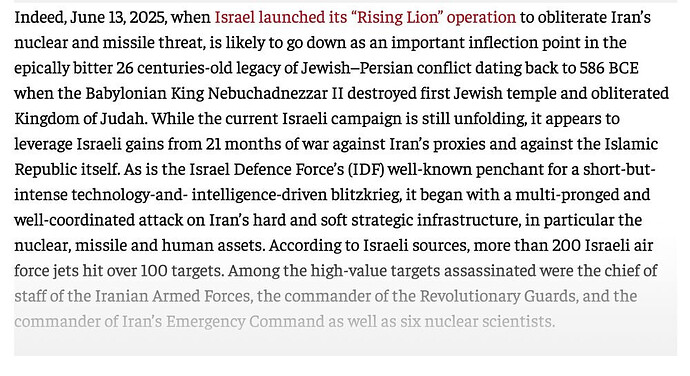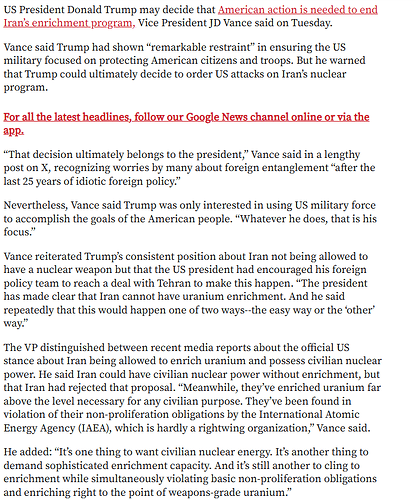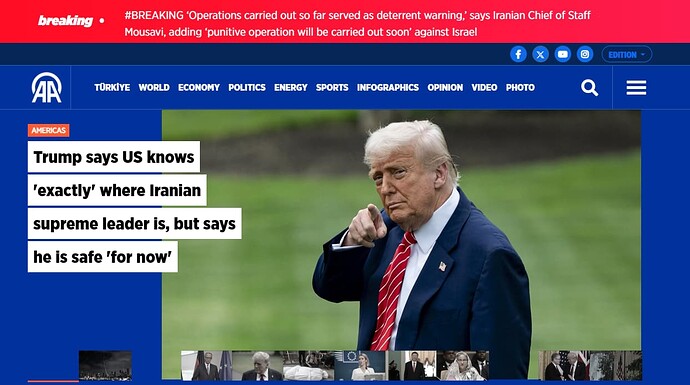Which implicitly says that they approved of everything else.
From the Guardian on the ongoing strikes on Tehran, but I put it under a blur, because the image is of a man covered in blood…
The media just can’t help themselves:
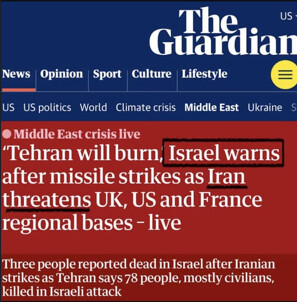
Archive for your second link:
these people are genocidal maniacs who have to be drummed out of polite society. I’m so sick of them dominating who gets to be considered a “moral” person…
So apparently they do know how to prioritize rejoining SOME children to family members, sick people to hospitals, etc
I have to believe that’s a dog whistle somehow. Who says “Persia” these days, other than Classics professors? Is it Biblical terminology, is that why?
I think they are using it to show how they aren’t like the other muslims, the ones from Arab nations, that are cool with Israel (at least for now).
That seems to confirm what I was asking: using “Persia” to make U.S. Christians think of Biblical times. Their knowledge of the Bible, especially the war histories therein, is usually very rudimentary so they don’t understand anything beyond sound bytes.
I mean, I guess, but also, pointing out the continuity of Persian identity is wrong per se (and I don’t think most Americans understand just how long Persian culture has been around and how proud Persians are of their culture, even those that don’t live in Iran)… I mean, I think the commentator is correct that if Netanyahu believed that bombing the country would ignite a rebellion against the regime rather than cause people to rallly around their flag, then he doesn’t understand what’s going on in Iran.
Could be, but also I do think people make this distinction in the region. I have a friend from Kuwait, but he comes from a Persian family, and he was always very clear about that distinction from the larger Arab culture they lived in… It didn’t help that Persians were considered an ethnic minority by the Kuwaiti government.
In the region, sure. But this was on NPR, to a U.S. audience. Celebrating subtle distinctions between Muslim groups is not a known U.S. attribute!
It’s not, you’re right, but maybe it should be. Having a better, more nuanced understanding of the rest of the world, and especially the global south, MENA, Latin America, and South East Asia and how American (and European) imperialism has shaped it would help American voters make better choices in the voting booth (although, we famously don’t vote on foreign policy much, plus the two parties aren’t exactly far apart of most foreign policy issues). We have after all spent the last couple of decades tearing the place up, so perhaps the least we can do is try and understand that there are divisions and complexities that have nothing to do with us…
